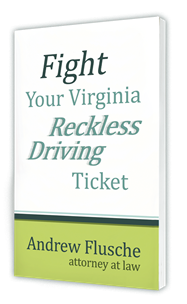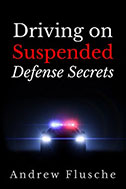Brandishing a Firearm
If someone accuses you of threatening behavior involving a weapon, you could face serious charges under Virginia law. The offense of brandishing a firearm is defined in §18.2-282 VA Code as displaying a firearm or something that looks like a firearm in a way intended to scare or intimidate another person. This is a criminal charge, not just a misunderstanding or poor judgment.
To secure a conviction, the Commonwealth must prove that you pointed, held, or displayed the firearm in a way that would reasonably cause fear in another person. The law does not require that you discharge the weapon or make verbal threats. A threatening display, depending on the context, may be enough to support a charge. Since these cases often depend on how your behavior is perceived by others, having a Virginia defense attorney can be essential to defending yourself against these charges.
What the VA Code Brandishing Statute Says
Virginia law defines brandishing a firearm as pointing, holding, or displaying a firearm or any air or gas-operated weapon in a threatening manner. You commit a crime if you do this with the intent to intimidate or scare another person. This charge applies whether the firearm is loaded or unloaded and whether or not you verbally threatened anyone.
Examples of What Counts As Brandishing
Brandishing a firearm includes a range of actions that, on the surface, may appear minor but are treated seriously under Virginia law. The common thread in every case is whether your behavior could reasonably cause fear in another person.
Some scenarios that could lead to brandishing charges include:
- Pulling out a gun and pointing it at someone during a heated argument;
- Lifting your shirt to reveal a firearm in public, without provocation or explanation; and
- Waving a firearm in the direction of another driver during a traffic altercation.
In each of these examples, the surrounding context matters. Courts evaluate what you did, how others perceived it, and whether a reasonable person would feel threatened by your actions.
By contrast, simply possessing or handling a firearm is not illegal. You may lawfully secure a weapon in a case, load it at home, or carry it openly if you are permitted to do so. Brandishing only occurs when your actions move beyond lawful possession and appear threatening. If no one else feels endangered and there is no evidence of intimidation, the situation likely does not meet the legal threshold for brandishing.
Brandishing a Firearm Sentence in VA
Virginia law defines brandishing a firearm as pointing, holding, or displaying a weapon in a way that another person could reasonably view as threatening. This includes both real and imitation firearms. To secure a conviction, the prosecution must show that you acted with the intent to intimidate or instill fear. The weapon does not need to be loaded, and no verbal threat is required.
Is brandishing a firearm a felony in Virginia? Under Virginia law, brandishing a firearm is classified as a Class 1 misdemeanor. A conviction can lead to up to 12 months in jail, a fine of up to $2,500, or both. Courts may also impose probation or restrict future firearm possession, depending on the circumstances.
Although the charge is a misdemeanor, the consequences can follow you long after the case ends. A criminal record may affect your employment and even housing options for years. It also could affect your immigration status if you are not a U.S. citizen.
How Often Do Firearm Offenses Arise in Virginia?
While detailed brandishing data isn’t always separated from more general firearms offense data, firearm crimes occur frequently. In 2023, Virginia law enforcement traced over 14,800 firearms recovered in connection with crimes, including over 4,100 weapon offenses. That year also saw more than 1,300 gun deaths, including 556 homicides and 723 suicides. These figures show how often guns can play a dangerous role in society, even when no one is injured.
Penalties Under § 18.2‑282 VA Code
Virginia treats brandishing as a Class 1 misdemeanor. Punishments include:
- Up to 12 months in jail;
- A fine up to $2,500; and
- A permanent criminal record.
Even though this is a misdemeanor violation, the charge carries more weight than minor offenses. Such charges on your record can lead to complications like losing firearm rights, trouble finding housing, and job or career damage.
Virginia Code § 18.2-282 makes it illegal to point, hold, or brandish a firearm, air or gas-operated weapon, or any object that appears similar. This act is known as brandishing a firearm.
Possible Defenses Against Brandishing Charges
You can challenge brandishing charges using several legal arguments:
- Lack of intent—you did not mean to scare anyone and were holding the gun for another reason;
- No reasonable fear—someone claimed fear, but a reasonable person would not feel threatened;
- Self-defense—you faced an imminent threat and displayed your firearm to protect yourself or someone else; or
- No display—the firearm was not actually visible to the alleged victim.
Your lawyer may also question whether law enforcement followed proper procedures during arrest, search, or evidence handling.
FAQs
Let’s review some of the key points covered above.
What Does it Mean to Brandish a Gun?
Brandishing means showing, pointing, or displaying a firearm in a way that would instill fear in another person.
What Is the Charge of Brandishing a Gun in Virginia?
Under Virginia law, brandishing a firearm is a Class 1 misdemeanor that is punishable by up to one year in jail and / or a fine of up to $2,500.
What Is the VA Code for Brandishing a Weapon?
Brandishing a weapon falls under VA Code § 18.2‑282.
Virginia treats brandishing as a serious offense, even though it is not a violent crime. If someone accuses you of this conduct, you may face jail time, a criminal record, and lasting collateral consequences. A dedicated defense attorney can review the evidence, gather witness statements, and protect your rights.
Talk to a Virginia Criminal Defense Lawyer Today
A brandishing charge may seem like a misunderstanding, but Virginia courts take it seriously. Even one mistake can lead to jail time, fines, and a permanent criminal record. You should not face these consequences alone. The attorneys at Flusche & Fitzgerald will help you understand your options, protect your rights, and build a defense grounded in Virginia law. Call our office today to schedule a confidential consultation with a trusted criminal defense lawyer. Early legal guidance can make a meaningful difference in how your case is resolved.




